 College-student-turned nun becomes famous on Internet
College-student-turned nun becomes famous on Internet
 Japanese airplanes tail Chinese warplane in China's ADIZ
Japanese airplanes tail Chinese warplane in China's ADIZ
 China applies for UNESCO listing of Nanjing documents
China applies for UNESCO listing of Nanjing documents
 Picturesque scenery in Hongcun Village
Picturesque scenery in Hongcun Village
 Japan's PM vows to resume commercial whale hunt
Japan's PM vows to resume commercial whale hunt
 Luoyang aims to become 'Chinese Culture City'
Luoyang aims to become 'Chinese Culture City'
 Century-old jade disc found confirms ancient legend
Century-old jade disc found confirms ancient legend
 A serious mind behind Chinese leader
A serious mind behind Chinese leader
 Panda Cubs to Predict 2014 World Cup Winners
Panda Cubs to Predict 2014 World Cup Winners
 China Southern Airlines flight attendants win titles in service contest
China Southern Airlines flight attendants win titles in service contest
HANGZHOU, June 16 -- Though the Chinese soccer team is again absent from the World Cup, Chinese products, from mascot Fuleco to official instrument the caxirola and hybrid buses, stand out.
"Since March, our factory has continuously received overseas orders. By the opening of the event, we had exported more than one million footballs," said Wu Xiaoming, general manager of a sports products manufacturer in Yiwu City, in east China's Zhejiang Province. Many orders came from South American countries.
The World Cup has been great for Yiwu, the world's largest wholesale center for small commodities and accessories. "Our clients are mainly from Europe. Since April last year, we have sold nearly two million caxirolas," said Wu Xiaogang, manager of a company which produces the cheerful instrument. Compared to the vuvuzela at the 2010 World Cup in South Africa, the profit on each caxirola is more than double. It is estimated that around 90 percent of caxirolas worldwide are produced in Zhejiang and Guangdong provinces.
"Because of the World Cup, the sale of commodities to soccer fans has increased by nearly 30 percent and are mostly wholesaled overseas," said Cheng Li, a dealer in Yiwu. Brazilian buyers are Cheng's main clients.
In the first five months, Yiwu's total exports to Brazil totalled 160 million U.S. dollars, up 31.4 percent year-on-year. Exports of sports commodities to Brazil were 2.78 million dollars, up 42 percent from the same period last year.
The soccer spectacular is a platform for Chinese products to display their strong competitiveness, more added value, higher quality and innovations.
Kayford Holdings Ltd, is the only licensee outside Brazil for plush mascot and 3D figurines.
"We have the final say on the pricing of the 3D figurines," said Li Hong, president of Hangzhou Landward, the parent company. The company has designed nearly 100 types of commodities in five categories for the mascot series.
"Made-in-China" has become "China marketing" as the company can freely select suppliers and distributors, said Li.
The company has sold more than one million of its mascot products to 39 countries, said Huang Kunlun, chief sales manager.
"What we feel most proud of is that no quality complaints have been received," he said. "'Made-in-China' is no longer a synonym for low-end products of poor quality."
Other Chinese products are also shining at the World Cup.
Hybrid buses developed and produced by a subsidiary of China's leading railway car manufacturer CSR Corporation Ltd, ferry the public between the airport and downtown Curitiba, one of the host cities.
As the sole Chinese sponsor at the soccer extravaganza, China's major solar energy company Yingli Green Energy has provided 27 sets of photovoltaic systems for lighting devices in all the hosting cities.
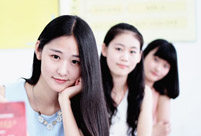 College girls take stylish photos to help enrollment
College girls take stylish photos to help enrollment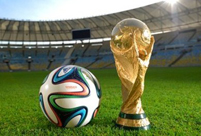 Top 10 Chinese products scoring World Cup goal
Top 10 Chinese products scoring World Cup goal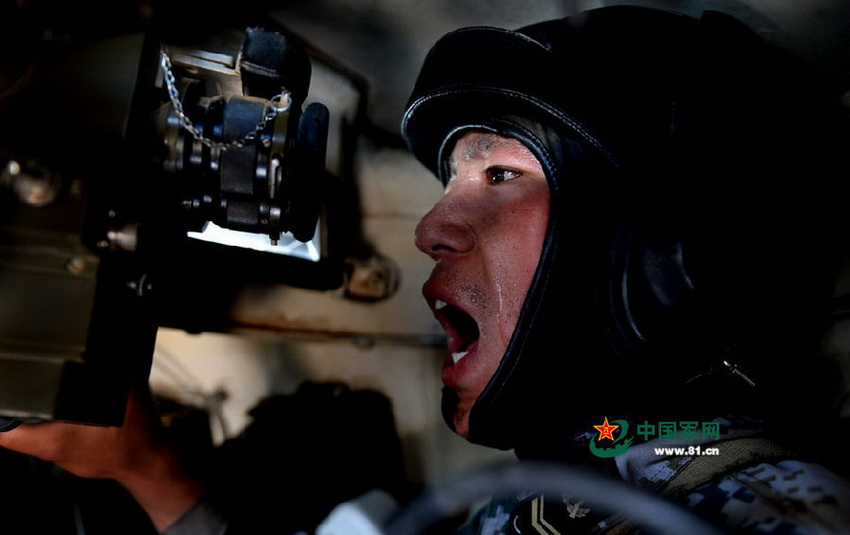 PLA units hone their tank combat skills
PLA units hone their tank combat skills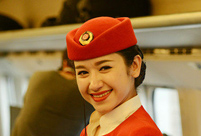 Attendants shine at Xinjiang-Lanzhou high-speed rail
Attendants shine at Xinjiang-Lanzhou high-speed rail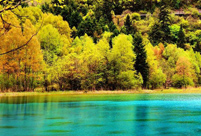 Jiuzhai Valley - fairyland of the world
Jiuzhai Valley - fairyland of the world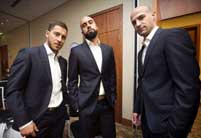 Can't take eyes off national teams in World Cup
Can't take eyes off national teams in World Cup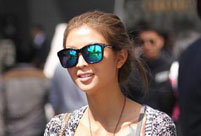 Beijing strips off to celebrate summer
Beijing strips off to celebrate summer
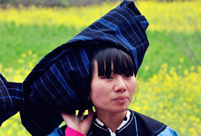 Traditional wedding ceremony of China's Buyi ethnic group
Traditional wedding ceremony of China's Buyi ethnic group Art school students present works in Nanjing
Art school students present works in Nanjing Top 20 hottest women in the world in 2014
Top 20 hottest women in the world in 2014  China's top 10 representative architectures
China's top 10 representative architectures Cute animals' leisure summer in zoo
Cute animals' leisure summer in zoo Exhibition of the Buddha held in Tibet
Exhibition of the Buddha held in Tibet Grandpa Kang takes Gaokao for 14th time
Grandpa Kang takes Gaokao for 14th time Incredible animal migration in Xinjiang
Incredible animal migration in Xinjiang Day|Week|Month